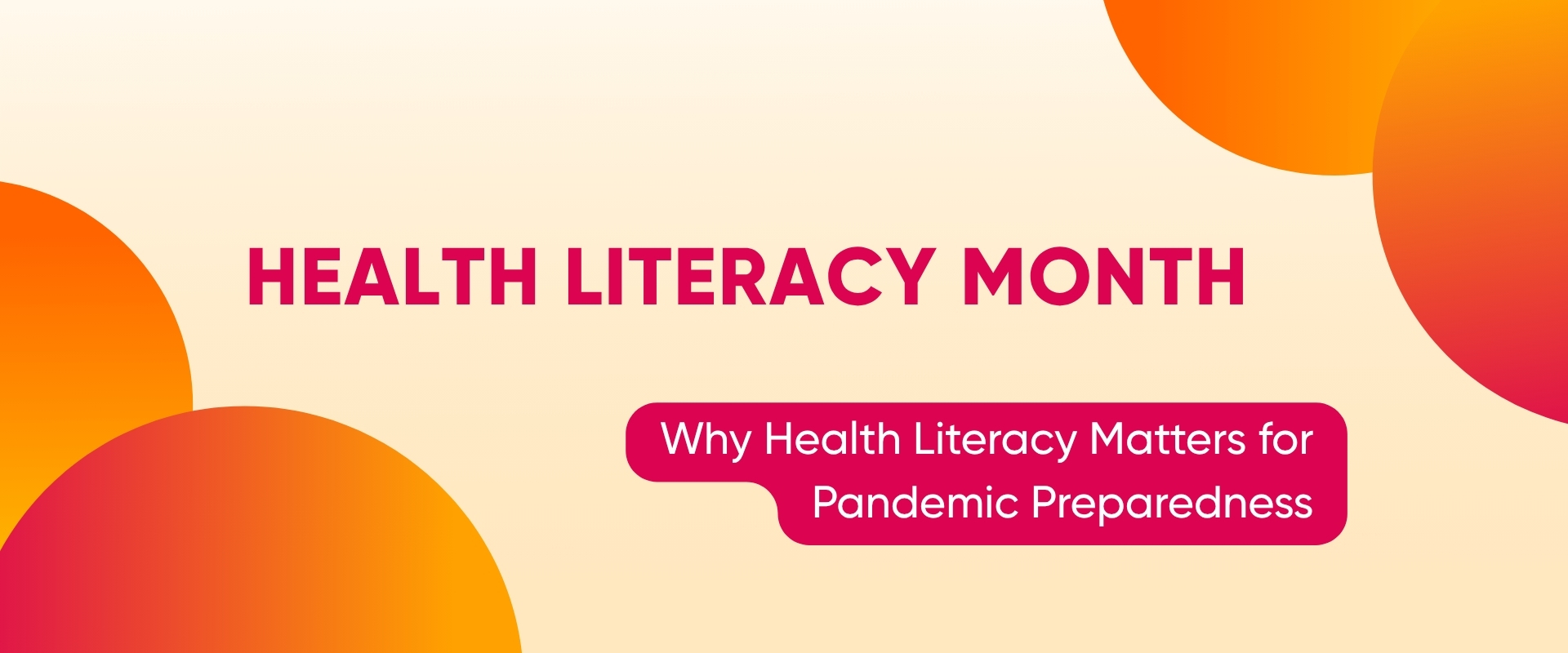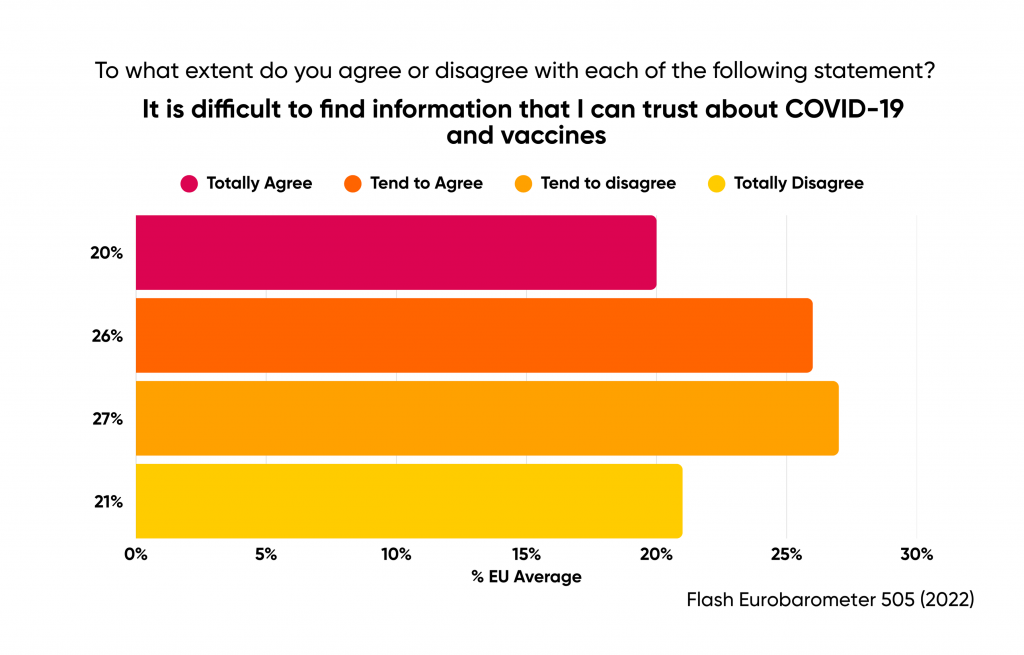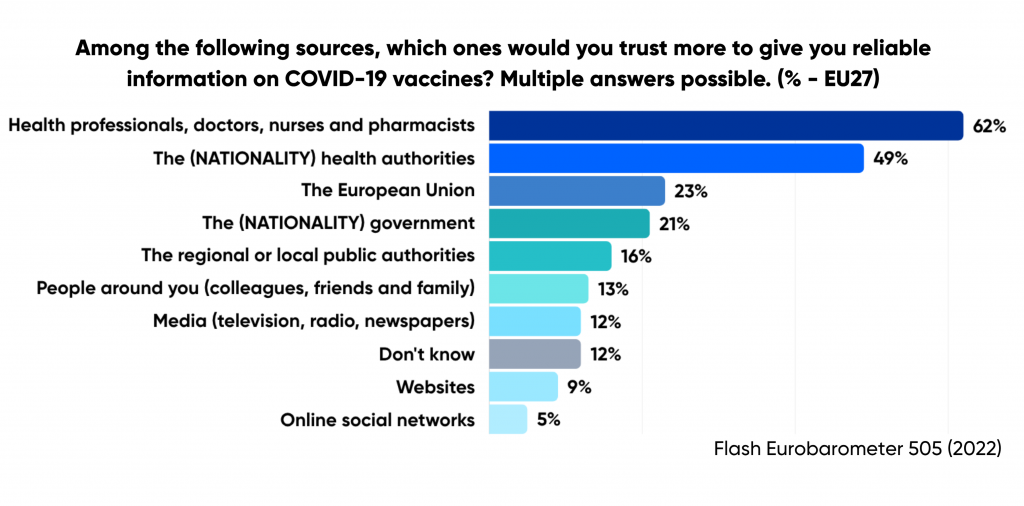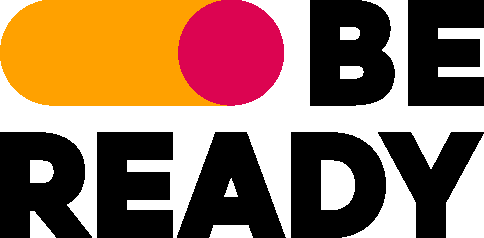Health Literacy and Trust: Building Europe’s Preparedness

Health Literacy and Trust: Building Europe’s Preparedness
As Health Literacy Month is coming to a close, it is a good moment to reflect on why literacy matters for Europe’s preparedness. Health literacy is not just about reading health information — it is about trust. When citizens can see and understand what is being done, they are better able to take informed decisions, hold institutions accountable when necessary, and push back against misinformation. This awareness is essential today if Europe is to build the trust needed for a future pandemic.
Why Health Literacy Matters for Pandemic Preparedness
Without visibility and comprehension, even the strongest actions risk being overlooked or misunderstood. For instance, a recent Eurobarometer survey (2024) – a survey tracking public opinion across EU Member States – shows that 82% of Europeans believe the EU should be more involved in preparing for future crises, through various actions such as raising awareness, organizing training and crisis simulation exercises. Yet only 26% can name a concrete example of EU action during past crises. In other words: citizens are supportive of EU involvement in principle, but many remain unaware of what the EU actually does in practice. Closing this awareness gap is essential if communication with citizens is to become more constructive and ensure lasting trust.
Misinformation thrives where literacy is weak
The COVID-19 pandemic showed how false claims and rumors can spread faster than official updates, undermining confidence in vaccines, treatments, and prevention measures.
Importantly, misinformation often feeds on genuine concerns that should not be dismissed. While a large majority of EU citizens (85%) believe vaccines are effective, many are still worried about potential side effects and find it difficult to identify trustworthy information (Eurobarometer 2022). On average, nearly half of the respondents also say it is difficult to find information they can trust about COVID-19 and vaccines. These doubts make it easier for misleading claims to take hold, especially if reliable answers are not easily accessible.
However, trust is not built by broadcasting information alone. Constructive communication means listening to people’s concerns, addressing doubts openly, and developing solutions together. This two-way approach is critical for building the cooperation that crisis response demands. Citizens need accessible information to feel included and to make informed decisions, but institutions also need to engage actively with communities.

The European Partnership for Pandemic Preparedness: closing the awareness gap
The European Partnership for Pandemic Preparedness (BE READY NOW) is a new initiative aiming to build a coordinated, pan-European research and innovation ecosystem, with efforts designed to help close this awareness gap. Its communication work aims to make research and preparedness efforts visible, empower citizens with the knowledge they need to evaluate information, and strengthen trust in the science and governance behind Europe’s crisis response.
One focus will be working through trusted messengers. The Partnership will support health workers, scientists, and community organizations to make preparedness visible and credible at the local level. There is good reason for this: citizens consistently place the greatest confidence in doctors, nurses, and scientists, rather than abstract institutions or online platforms.
During COVID-19, 24 of the 27 EU Member States felt that health professionals, doctors, nurses, and pharmacists were the most trusted source of information (Eurobarometer 2022). By contrast, only 9% relied on websites and just 5% on online social networks as a source of health information.
Not only do most people trust healthcare professionals most, but that trust translates into action — 63% say a doctor’s recommendation led them to vaccinate (Eurobarometer 2019). This illustrates why intermediaries like clinicians should be central to preparedness communication.

The Partnership will also invest in participatory tools to foster transparent, trust-based interaction with citizens and stakeholders. Alongside materials such as factsheets, infographics, and multilingual content adapted to different literacy levels, a pilot online platform will facilitate exchange, crowdsourcing, and collaboration between researchers, professionals, and the wider public. Citizens will be included throughout the process, with their feedback helping to shape communication priorities and improve preparedness over time. Social listening and regular feedback mechanisms will help identify concerns early and ensure that communication evolves through dialogue and participation, moving beyond one-way information sharing.
From awareness to resilience
Lasting trust depends on awareness. When citizens understand what is being done in their name, they are better able to make informed choices and resist misinformation. By empowering citizens with knowledge and making preparedness efforts visible, the EU Pandemic Preparedness Partnership is laying the foundations for long-term resilience across Europe.
Curious about how the Partnership works in practice? Our first article in this series explains its structure and ambitions.
Sources:
- European Commission (2019). Special Eurobarometer: Europeans’ Attitudes Towards Vaccination. Available at: https://europa.eu/eurobarometer/surveys/detail/2223
- European Commission (2022). Flash Eurobarometer 505 – Attitudes on Vaccination against COVID-19. Available at: https://europa.eu/eurobarometer/surveys/detail/2692
- European Commission (2024). Standard Eurobarometer: Perceptions of EU Crisis Management. Available at: https://europa.eu/eurobarometer/surveys/detail/3220
